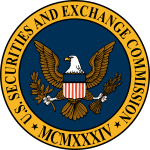Security and Exchange Commission Warns of Bitcoin Pitfalls
I think it was the international model Hansel who once said, “Bitcoins. They’re so hot right now.” And while not many people are about to detach from the banking system and go full-bitcoin, the virtual currency has been grabbing the public’s attention. But as the non-tech savvy become more familiar with bitcoin and possibly dip their toes into the bitcoin pool, the chances of problems grow. As such, the U.S. Security and Exchange Commission (SEC) issued an investor alert last week educate people about the risks bitcoins and other virtual currencies present.
First, let’s briefly explain bitcoin. Bitcoin, as mentioned, is a virtual currency that is held completely electronically; there is no such thing as a physical bitcoin. They are created, essentially, as a reward for computers solving complicated mathematical problems. Don’t worry about that, though – it is pointless for individuals with a single computer to try to “mine” bitcoins. It is typically done by banks of linked computers owned by very dedicated enthusiasts or even companies dedicated to creating bitcoins.
The appeal of bitcoins to many is that they are exchanged via a peer-to-peer network, totally decentralized, and not regulated or controlled by any government. They have particularly piqued the interest of online poker players in the U.S. who have been running out of poker sites at which they can make traditional deposits. As you likely know, the Unlawful Internet Gambling Enforcement Act of 2006 (UIGEA) prohibited financial institutions from transferring funds to and from online poker rooms, but with bitcoins, this is no longer an obstacle. As bitcoin transfers are peer-to-peer and don’t go through a bank, it is possible to use them to fund poker accounts. Now, there aren’t many options out there for bitcoin poker yet, but both America’s Cardroom and Winpoker.com accept bitcoin and SealsWithClubs deals solely in bitcoin, so there are a few choices.
And while a government hearing on bitcoin a few months ago was surprisingly positive, the SEC still wants to let us know what problems might arise from using the currency. The agency first warns that “Investments involving Bitcoin may have a heightened risk of fraud,” mainly because of how new the currency is. People start hearing the hype and someone comes along with some amazing investment opportunity which is really just a big, old scam. The SEC says to look out for these warning signs:
• “Guaranteed” high investment returns
• Unsolicited offers
• Unlicensed sellers
• No net worth or income requirements
• Sounds too good to be true
• Pressure to buy RIGHT NOW
This gets to the next point of the investor alert: “Bitcoin users may be targets for fraudulent or high-risk investment schemes.” The alert goes on:
Fraudsters target any group they think they can convince to trust them. Scam artists may take advantage of Bitcoin users’ vested interest in the success of Bitcoin to lure these users into Bitcoin-related investment schemes. The fraudsters may be (or pretend to be) Bitcoin users themselves. Similarly, promoters may find Bitcoin users to be a receptive audience for legitimate but high-risk investment opportunities. Fraudsters and promoters may solicit investors through forums and online sites frequented by members of the Bitcoin community.
Next is, “Using Bitcoin may limit your recovery in the event of fraud or theft,” focusing on the notion that it is very difficult for the SEC to investigate bitcoin crimes. The SEC says that the lack of a “central authority” means that it must search around for bitcoin records, rather than just going to say, a bank. Similarly, tracing money or freezing funds could prove more difficult. Related to the latter point, one legitimate issue with bitcoins is that transactions cannot be reversed without the party who receives the money actually initiating a refund. When we use a regular credit card, we can dispute a charge. When there’s a problem with a withdrawal from our checking account, we can talk to the bank. But if an improper bitcoin transfer is made, that’s it. The only way to get the money back is if the receiver sends it back himself.
Finally, the SEC warns us that bitcoin investments present “unique risks.” The most obvious is price volatility. Anyone with the slightest familiarity with bitcoin know how much its value has changed over the past year and even just the last few months. According to Coindesk.com, on May 14, 2013, one bitcoin traded for about $111 on bitcoin exchanges. By the end of October, it was at nearly $200 and from there, the price skyrocketed. On December 4, one bitcoin was worth a whopping $1,147. And now, just five months later, that price is down to $437.
The SEC also wants to make sure we understand that bitcoins are not insured. If something happens to someone’s digital wallet or to a bitcoin exchange where a person’s bitcoins are held, no government is going to offer any recourse to get that money back. There are ways to protect one’s digital wallet, but that is all on the individual. Related to that are security concerns. While there are always security concerns with traditional banks and investment houses, the emerging technology of bitcoin could make itself particularly vulnerable to hackers or technical problems. Bitcoin owners just recently experienced security problems first hand, as the world’s largest bitcoin exchange, Mt. Gox, went belly up and hundreds of millions of dollars worth of bitcoins were lost.
Bitcoins are a fascinating new currency and could have an exciting future, especially for online poker players in the United States who live in jurisdictions without legalized internet poker. And while the SEC is not saying that bitcoins are necessarily bad, it does want to make sure that people are aware of the currency’s risks and that they educate themselves before jumping into any sort of virtual currency investment.



















COMMENTS